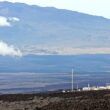Security in the new epoch
By Anthony Turton, August 30, 2012
A prominent theme running through several essays in this Roundtable has been security. Wang Haibin has discussed the ways in which people of different economic classes perceive the risks to personal security that are posed by climate change and nuclear energy. Hira Bahadur Thapa has detailed the threats to Nepal that South Asia's unsettled security situation entails. And I have written about South Africa's acute water constraints, which I believe threaten the country's economic security and indeed its survival — and which I also believe could be mitigated through nuclear-powered desalination efforts (perhaps with proliferation concerns reduced by the use of thorium as fuel).
Human beings are capable of enhancing their own security through sophisticated means that are unavailable to other species. During the Holocene — the geologic epoch when Earth's climate was relatively stable — people learned to grow food, manage water, and build permanent shelters that mitigated environmental risk. Technological advances such as these allowed humanity to become a dominant species; the capacity for manipulation and control is an essential element of human success.
This capacity also makes human beings the only species that can hope for security as a fundamental condition of existence. Other species' lives are characterized by inherent insecurity; a range of adaptive strategies has evolved as a result. One of the most successful strategies is for members of a species to cooperate when faced with a common threat. I believe that, though human beings have succeeded because of their ability to manipulate their environment, they will have to adopt the cooperation strategies of other species in order to continue prospering.
Dominance and wisdom. I asserted in my second Roundtable essay that a transition has been effected from the Holocene to the Anthropocene. That is, human beings have begun to manipulate their surroundings on a global scale — and new security challenges, like climate change, have emerged as part of this process. These challenges affect individuals, who live within particular ecosystems, but each ecosystem is nested within the global climate system; even national economies can be seen as wholly owned subsidiaries of the global ecosystem. Thus, though the new security challenges of the Anthropocene will often manifest in local forms, approaches to them must be subordinated to global considerations. Efforts to achieve balance between the local and the global are likely to influence political systems at various levels.
This brings my argument back to nuclear energy. Will the security risks posed by global warming prompt people to accept the more localized risk of accidents at nuclear power facilities? Will people's calculations be affected by improved nuclear oversight and continued advances in engineering? Is it correct to characterize the acceptance of nuclear power as the sort of cooperative behavior that human beings must display if they are to continue thriving? To my mind, answers to these questions proceed from accepting that human beings are the world's dominant species, but acting on that acceptance with wisdom. Applied to nuclear issues, wisdom might mean embracing the further development of peaceful nuclear technology while rejecting weaponization. (Applied to water, it would require people to behave like custodians, instead of mere consumers who discard an altered form of water as waste.)
Meanwhile, in order for the security challenges of the Anthropocene to be met, humans through their ingenuity must produce technological advances quite quickly, and institutions must incentivize such advances when market demand does not spur them. This is a tall order, and it must be addressed in disparate contexts, on scales both global and local. The job will be easier if human beings can maintain an awareness of the interrelatedness of ecosystems, and the nested nature of threats and opportunities. Humanity must be brave enough to explore the new frontiers of science but wise enough to fashion a collective security in which security does not depend on building weapons.
Topics: Climate Change, Nuclear Energy
Share: [addthis tool="addthis_inline_share_toolbox"]














